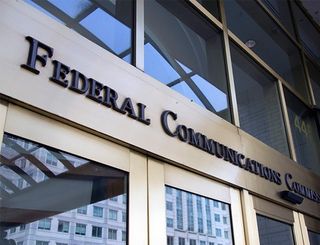FCC Judge Rules For GSN in Cablevision Complaint

An FCC administrative law judge has ruled that Cablevision, now owned by Altice, discriminated against GSN (Game Show Network) on the basis of non-affiliation by "unlawfully" moving it to a sports tier while Cablevision's WE tv remained on expanded basic.
Oral argument in the case was held over a year ago.
The judge recommended that the FCC require Cablevision to carry GSN on expanded basic and impose the maximum fine of $400,000, though the judge points out Cablevision can easily afford that.
That came despite an Enforcement Bureau conclusion last year (in comments in advance of oral argument), that GSN had not demonstrated affiliation-based discrimination or shown that it was similarly situated to WE tv or another Cablevision-affiliated network, the Wedding Channel.
Cablevision must carry GSN on expanded basic, "or the current or future tier that has 90 percent or more penetration," until they strike a new contract, or five years, whichever comes first.
GSN had said that Cablevision should have to immediately draw up a new contract guaranteeing it the same carriage and license fees as the affected WE TV, but the judge disagreed.
"Such remedy is not appropriate because it is Cablevision’s carriage of GSN on the premium sports tier that has been adjudged unlawful, not its carriage of GSN on an at-will basis."
Broadcasting & Cable Newsletter
The smarter way to stay on top of broadcasting and cable industry. Sign up below
In fact, the judge suggested that dropping GSN altogether might have avoided the discrimination finding.
"On two occasions, Cablevision considered but rejected a legitimate business option to unilaterally drop its carriage of GSN," the judge said. By contrast, he said the "re-tiering" of the channel was not lawful and that Cablevision moved to a sports tier on only the "pretext" of a "legitimate" business decision. "Legitimate" is the key since discriminating could boost Cablevision's business, but not lawfully.
"As the conclusions of law determined that Cablevision discriminated against GSN as a non-affiliated network with the effect of unreasonably restraining GSN’s ability to compete fairly, the related issues presented are on which tier and under what terms Cablevision must carry GSN; not whether Cablevision must carry GSN at all."
That was the recommendation of Judge Richard Sippel in a Nov. 23 tentative decision. The FCC commissioners must still vote on that "initial decision."
"GSN has satisfied its burden of proving by a preponderance of evidence that Cablevision engaged in discrimination in the selection, terms, or conditions of carriage on the basis of GSN’s non-affiliation with Cablevision," Sippel wrote in the 65-page decision. He also concluded that Cablevision had unreasonably "restrained" GSN from competing "fairly.
" GSN first filed a carriage complaint with the FCC in Oct. 2011, alleging that Cablevision discriminated against the channel by moving it from a basic tier to a premium sports tier on its systems in February 2011. The change, GSN claimed, caused its ratings to “crater”
GSN claimed Cablevision used its market power to favor its own affiliated networks like WE tv and the now-defunct Wedding Central channel, which did not change channel positions. Cablevision countered that there was a legitimate, nondiscriminatory, basis for the move.
In May 2012 the FCC said the case should be heard before the administrative law judge, which did not happen until last year.
“We respectfully disagree with the ALJ’s decision and fully intend to appeal [to the FCC],” said Altice in a statement.
Mike Farrell contributed to this report.
Contributing editor John Eggerton has been an editor and/or writer on media regulation, legislation and policy for over four decades, including covering the FCC, FTC, Congress, the major media trade associations, and the federal courts. In addition to Multichannel News and Broadcasting + Cable, his work has appeared in Radio World, TV Technology, TV Fax, This Week in Consumer Electronics, Variety and the Encyclopedia Britannica.

